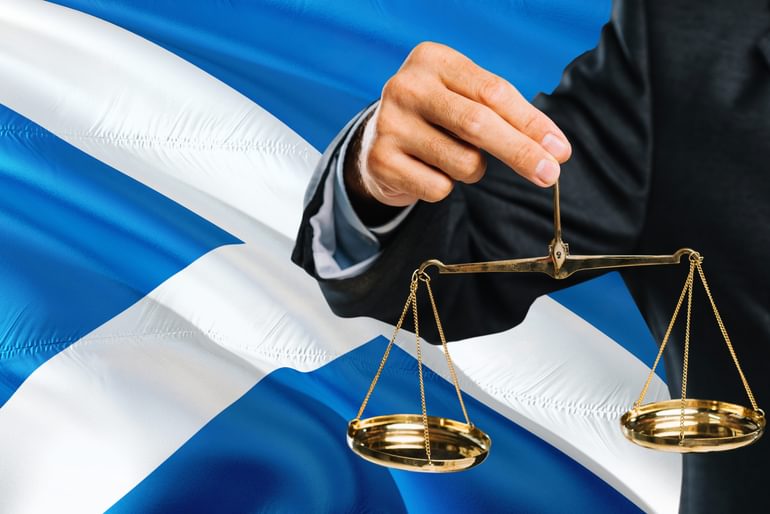Scottish Court Actions
This article has been guest written by Stephen Cowan, Managing Director of Yuill & Kyle, one of Scotland’s leading debt recovery specialists, provides an insight into Scottish court actions.

Court actions can be separated into two distinct categories, determined by the level of debt being recovered:
a) Simple procedure - actions for recovery of sums up to £5,000
b) Ordinary action – actions for recovery of sums in excess of £5,000
In Scotland, a creditor can seek recovery of interest at the rate of 8% per annum from the date when the court document is served on the debtor until the principal sum is paid (and more if the contact allows).
Of course, as an alternative, the creditor can either charge interest and collection costs in terms of the Late Payment of Commercial Debts (Interest) Act 1998 or interest in terms of the contract, subject to such terms actually being incorporated into the contract.
Simple procedure [up to £5,000]
Court action is commenced by the claimant preparing a claim on a pre-printed form. Supporting invoices or a statement of account are not required to be produced along with the form. However, details of the invoice or statement have to be in the body of the form.
A copy of the form must be served (issued) to the Respondent. This is done by the claimant’s lawyer – usually be recorded delivery post – and thereafter by sheriff officer if postal service is unsuccessful.
The court will issue the claimant with a timetable. This will contain the “response date”. This is the date that the respondent will have to intimate either a defence to the action or a time to Pay Application. If there is no response, then the claimant has to apply to the court for a decision within two weeks of the response date.
What happens if the claim is disputed?
If the respondent intimates an intention to dispute the claim then the Sheriff will send “first written orders” within two weeks from the date the court received the response form. The “first written order” may do one of five things:
a. Refer the case to alternative dispute resolution
b. Arrange for a case management discussion
c. Arrange a Hearing
d. If the Sheriff thinks a decision can be made without a Hearing indicate that this is the Court’s intention
e. Possibly dismiss the case
Remember that if this happens, it is likely the Sheriff will attempt to negotiate and secure settlement of your claim. Remember too that, if possible, the Sheriff will reach a decision on the whole dispute on the basis of information presented to them. Accordingly, you will need to provide a response to the following:
1. Have you attempted to negotiate settlement? If so, what happened as a result of the negotiations?
2. For example, if negotiations fell through why did this happen?
3. What is your response to the defence?
4. Will you be happy to try to negotiate a settlement of the case and, if so, on what terms?
Be sure to send all contractual documentation to support your claim.
Ordinary Actions [£5,000+]
Unlike Simple Procedure, there are no pre-printed forms. The writ will be drafted and forwarded to the court. The defender has 21 days after service of the writ to decide what action to take.
Defender’s responses
There are various ways the defender can respond to the service copy writ. The defender does nothing – the claimant can, on the expiry of 21 days, minute for decree. If the defender admits the claim and makes a payment offer, the claimant completes an appropriate form and sends it to the court. If the offer is unacceptable the case will call in the court and the court will decide if the application should be granted. The court takes about three weeks to send the judgment to the claimant’s lawyer.
